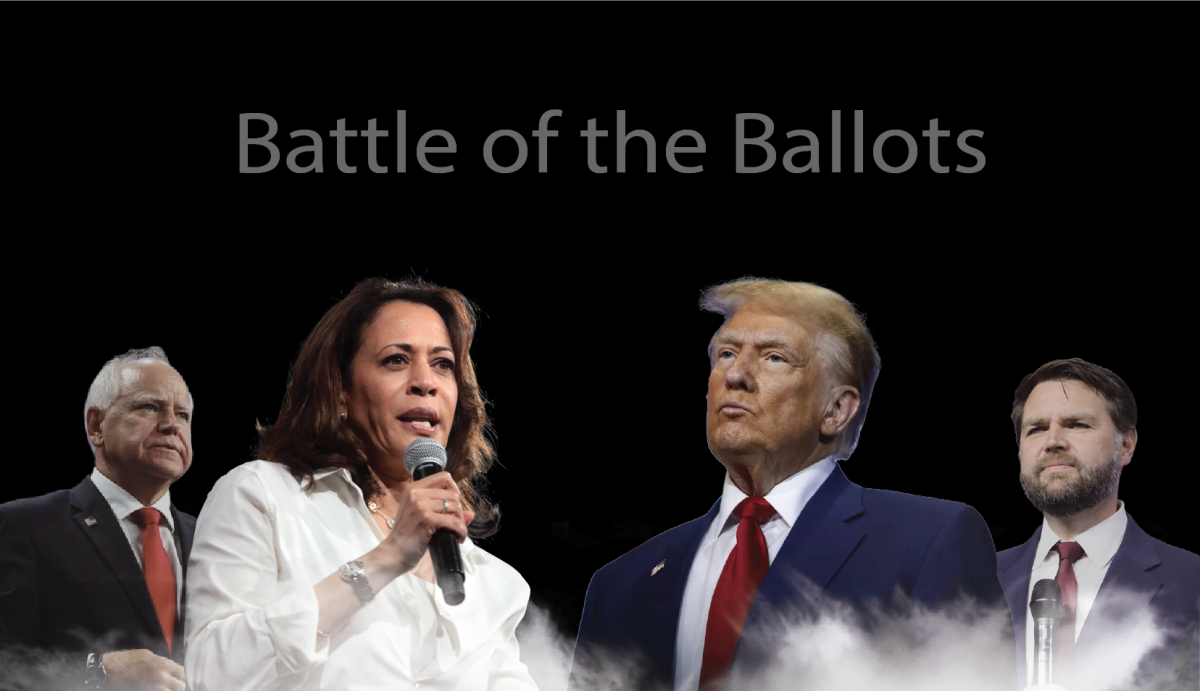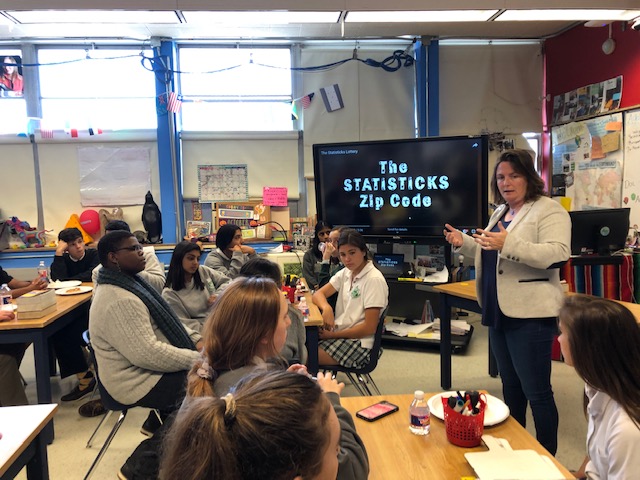Introduction
As global conflicts escalate, the United States’ vital foreign policy position hinges on the outcome of the 2024 presidential election. Former President Donald Trump and current Vice President Kamala Harris envision vastly different roles for the country on the global stage, which respectively reflect the engagement the government will have with other nations. The decision voters make this November will impact America’s foreign alliances, its leadership in playing global peacemaker and its role in mitigating economic and climate issues that affect the entire world.
Relationship With Allies
If he wins the 2024 election, Former President Donald Trump’s foreign engagement will likely reinforce his nationalistic “America First” policy which he brought to fruition in his previous presidency. This ideology supports a focus on American domestic interests over foreign affairs.
In his potential next term, he has been threatening to change America’s commitment to the North Atlantic Treaty Organization (NATO). He believes that the United States has been picking up a heavy financial burden for the organization, while the other member countries have not “been paying their bills,” as he said at a February rally in South Carolina.
“Trump coming back to power could have significant consequences for NATO,” Lucio Benedetto, Hockaday’s Foreign Policy teacher said. “In terms of American aid to European conflict, he’s thinking that, sure, Russia invaded Ukraine, but where’s the greater national security threat? China.”
In contrast to Trump’s threat to the NATO status quo, Kamala Harris believes that U.S. leadership in the alliance is vital to national security and to democracy on a global level. The Vice President has frequently mentioned her dedication on the campaign trail to providing funding and weapons for Ukraine and has promised to continue supporting NATO while rejecting the “America-First” rhetoric she calls “isolationist.”
“History has also shown us: if we only look inward, we cannot defeat threats from outside; isolation is not insulation,” said Harris at the 2024 Munich Security Conference. “In fact, when America has isolated herself, threats have only grown.”
Aside from the European stage, the Vice President has expressed her commitment to ending the war in Gaza and proposed a two-state solution during the 2024 Presidential Debate. While Harris supports Israel’s right to defend itself from Hamas, who she has described as a “brutal terrorist organization,” she also firmly believes in the Palestinian people’s rights to “dignity, security, freedom, and self-determination,” as stated in her campaign.
Relationship with Adversaries
Trump approaches America’s international relations using an aggressive approach, harnessing both economic and military means to execute his goals.
In his previous presidency he imposed tariffs on Chinese goods and put restrictions on certain exports to China, both of which were expanded under the Biden presidency. He also has ordered drone strikes to kill American enemies, such as his controversial termination of Iranian commander Qasem Soleimani.
“He was planning a very major attack, and we got him,” Trump said, following the announcement of Soleimani’s death.
However, this move has been heavily criticized for severely escalating tensions in the Middle East, further estranging Tehran from Washington.
“We don’t know for sure, but we can assume that Trump will continue with similar hardline approaches if he takes office again,” Benedetto said.
Benedetto said Harris, on the other hand, has reinforced the Biden’s more tempered approach to dealing with adversaries like China, Russia, North Korea and Iran.
Generally focused on employing diplomatic action over decisive blocks, Benedetto feels that the administration has worked to repair alliances with Asian allies, attempted to restore the Iran nuclear deal, and bolster European support to circumvent Russia.
They have also continued to impose tariffs to limit China’s growing economy— in continuation of Trump’s policies— and have placed heavy sanctions to weaken Russia in swift consequence for its invasion of Ukraine.
The foreign policy teacher went on to mention, however, that Harris has had little opportunity to distinguish herself from Biden’s policies, as the role of the vice president is quite literally to promote the president’s policies. If elected, she may choose to follow a different stance than exactly what was done by her predecessor.
Climate Change
In comparison to Biden, Harris has been described as an even more aggressive opponent of the fossil fuel industry, an approach evident in her goals for domestic and international policy.
The Vice President was heavily involved with globally combating climate change long before she ever set foot in the White House, helping to win tens of millions in settlements against multinational oil and gas companies as an attorney general. In 2022, Harris also advocated for the passage of the Inflation Reduction Act, which according to her campaign, is “the largest investment in climate action in history.”
In contrast, Trump had previously claimed that climate change was a hoax. He overturned around 100 environmental regulations and withdrew the United States from the Paris Climate Agreement.
“I don’t know if Trump is truly a climate change skeptic, but he certainly seems to believe that America is placing too many restrictions of fossil fuels,” Benedetto said.
Upon being sworn in as vice president, one of Harris’ number one priorities was to restore U.S. leadership in combating climate change. A goal that was promptly accomplished, as the U.S. re-entered the Paris Climate Agreement on her first day as vice president.
If elected, Harris has promised to continue global cooperation with climate-friendly policies, and to challenge those resisting these efforts.
“Around the world, there are those who seek to slow or stop our progress,” said Harris at the 28th UN Climate Change Conference. “Leaders who deny climate science, delay climate action, and spread misinformation… In the face of their resistance and in the context of this moment, we must do more.”
On the other hand, Trump emphasizes the importance of fossil fuels to the American economy. On his current campaign trail, he consistently reiterates the need to increase oil and gas production, using the slogan “drill, baby, drill” to promote this agenda.
If reelected, he has promised to destroy the 2022 Inflation Reduction Act, and has alluded to eliminating many domestic environmental agencies, which would reflect in America’s handling of climate policies on the international stage.
Immigration
According to his campaign website, Trump’s immigration stance is a central component of his reelection campaign. He plans to implement more aggressive policies at the United States – Mexico border, including increased deportations and patrols, and ending the Deferred Action for Childhood Arrivals program (DACA).
If DACA is terminated, it will affect many undocumented immigrants, many of whom have lived in the country their entire lives. To enforce his border security policies, he plans to finish the border wall, which was a hallmark of his first term.
Outside of the southern border, he has suggested reinstating and expanding travel bans on select Muslim-majority countries. During his first term, Trump issued Executive Order 13769, which blocked entry to the United States for citizens from seven Muslim countries. Though it was issued for national security reasons, it stirred up controversy and earned itself the nickname the “Muslim ban.”
Immigration has been one of the most contentious issues of Biden’s presidency and Harris has struggled to define her own position on immigration, while still supporting her actions as part of the Biden administration.
Harris heavily supported the Bipartisan Border Security bill, which failed in Congress after being struck down by House republicans. If elected, she has promised to once again champion the border package, while also seeking other solutions.
“At the same time, [the Vice President] knows that our immigration system is broken and needs comprehensive reform that includes strong border security and an earned pathway to citizenship,” Harris’ campaign said.
Harris has emphasized the importance of creating humane policies and maintaining DACA, while also maintaining that tougher border security approaches are necessary.
“The United States is a sovereign nation,” Harris said. “And I believe we have a duty to set rules at our border and to enforce them.”





